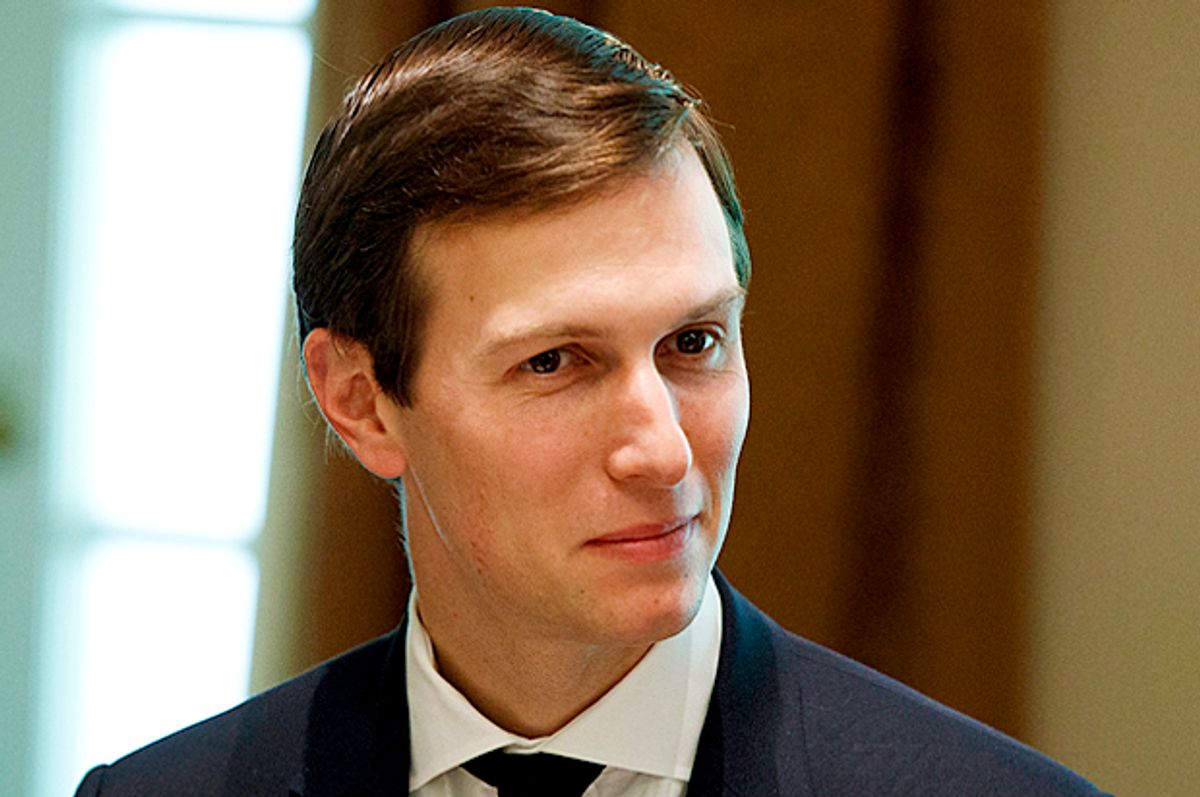The top-ranking members of the Senate Judiciary Committee said on Thursday that President Donald Trump's son-in-law and senior adviser Jared Kushner had not turned over emails about Wikileaks and a "Russian backdoor overture and dinner invite" and demanded that Kushner now produce them.
In a letter to Kushner's attorney, Abbe Lowell, committee chairman Chuck Grassley, R-Iowa, and Dianne Feinstein, D-Calif., wrote that based off of other documents provided to the panel by other witnesses, Kushner had not disclosed "several documents that are known to exist," and demanded they be turned over, the Washington Post reported.
"You also have not produced any phone records that we presume exist and would relate to Mr. Kushner’s communications," Grassley and Feinstein wrote in the letter.
The documents Kushner failed to disclose include a series of "September 2016 email communications to Mr. Kushner concerning WikiLeaks," that Kushner then forwarded to another campaign official, the Post reported. The details of those communications, or what was discussed in regards to Wikileaks, is not clear at the moment. However, the news comes as it was revealed this week that Donald Trump Jr. and the organization had exchanged direct messages through Twitter during the campaign.
But Kushner, who has already established a track record for not disclosing the requested information, also did not turn over "documents concerning a 'Russian backdoor overture and dinner invite,'" which he had forwarded to other campaign officials, the Post reported.
Kushner was also made privy to "communications with Sergei Millian" a Belarusan American who claims to have close ties to Trump and was a source on the dossier containing lewd details about the president, the panel leaders said, according to the Post.
The panel leaders informed Kushner he had until Nov. 27 to produce what they were looking for, however, there was no threat to subpoena the information if he failed to cooperate.
The Senate panel is also seeking transcripts from Kushner's interviews he previously had with members of the Senate and House intelligence committees.



Shares